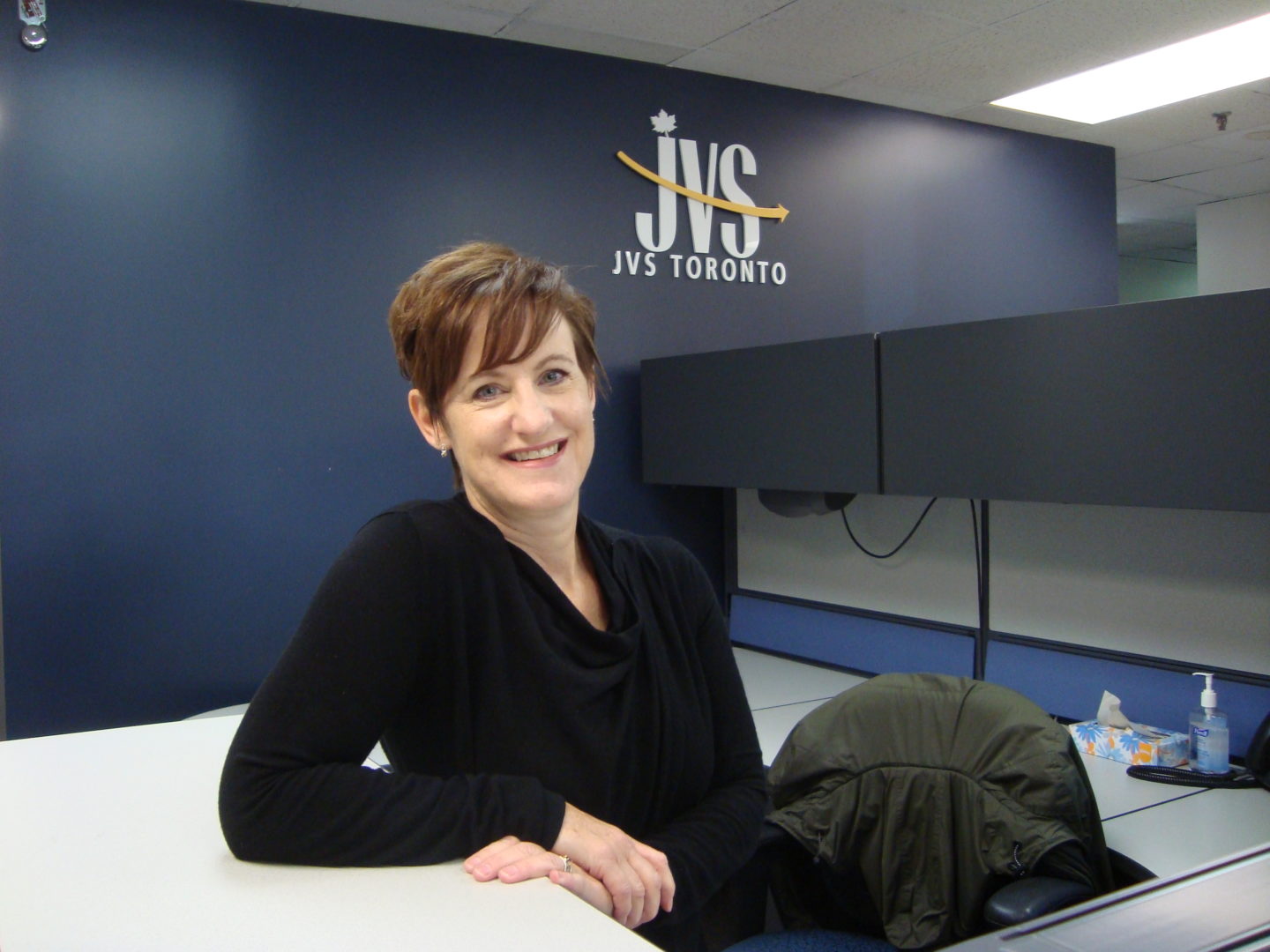The world is quite a different place today than it was 70 years ago. Back then, the Second World War had ended just two years prior and the Canadian Jewish community was still trying to figure out how best to help survivors of the Holocaust.
Max Enkin, the man who would go on to serve as the first chair of the board of Jewish Vocational Services (JVS), traveled to Europe to help Jews living in displaced persons (DP) camps come to Canada to work in the garment industry. He recruited 2,000 survivors, who were brought to Canada and, with training from JVS, found jobs in the textile industry. Soon, JVS expanded its mandate to help wounded veterans find work, as well.
From that auspicious start, JVS went on to become an institution in the Jewish community. It recently celebrated its 70th anniversary with a re-dedication of the Al Green Resource Centre in Toronto, which serves people with developmental disabilities. From its previous location at 2700 Dufferin St., it was relocated last May to the its current site at JVS’s headquarters on Tycos Drive.
Today, JVS boasts nine locations in the Greater Toronto Area, including five employment centres. Last year, JVS served nearly 10,000 clients – a huge jump over the 200 who took advantage of its services in 1947.
Today, the vast majority of its clients are not Jewish, which is a testimony to Toronto’s changing character. Nevertheless, the agency retains its longstanding heritage of serving the Jewish community, while helping others in the broader public, said Sharon Cardie, director of communications, marketing and quality for JVS Toronto.
As JVS has expanded its mandate beyond the Jewish community, it has also broadened the scope of its services. Where once the emphasis was on preparing people for work on factory assembly lines and in other traditional trades, today, JVS helps train people coping with various types of disabilities.
READ: JVS JOB FAIR EMPOWERS JEWISH, NON-JEWISH JOB SEEKERS
While “disability Services have been a focus for JVS Toronto since the 1950s,” Cardie said, “the Al Green Resource Centre was established in 2003 at a standalone location at 2700 Dufferin St., through the support of the Green family, serving individuals with developmental disabilities.”
“The Al Green Resource Centre now houses all our disability services programs, supporting individuals with developmental, learning, ADHD, dual-diagnoses (developmental disability combined with mental health issues), autism spectrum disorder and other disabilities, in a fully accessible, newly renovated space,” Cardie said.
Over the years, JVS has grown tremendously. It now has 166 employees and a budget of $17 million. More than $14 million comes from grants from three levels of government, about $225,000 is provided by UJA Federation and another $550,000 comes from United Way Toronto and York Region.
Today, only about 10 per cent of the agency’s 10,000 clients are Jewish, though it tries to maintain its ties to the community. In addition to the funds received from the Federation, the vast majority of the agency’s private donors, who gave $109,000 in 2016, are Jewish.
It also operates numerous programs that specifically help members of the Jewish community. It runs the EMETemployment program, an online service that matches Jewish job-seekers with Jewish employers. JVS personnel also provide psycho-educational assessments of students attending Jewish day schools and its staff go to Jewish schools to talk to students about careers and job interview skills.
The agency co-operates on poverty issues, seniors’ programs, homelessness and resettlement issues with other Jewish agencies, such as Jewish Family & Child Service of Greater Toronto and JIAS (Jewish Immigrant Aid Services) Toronto.
JVS Toronto is part of an international network called the Network of Jewish Human Service Agencies.
Ultimately, JVS’s goal is to prepare its clients to be independent.
“JVS is a survivor,” Cardie said. “We’re part of the greater community and we provide services to people on both sides” – whether Jewish or not.
